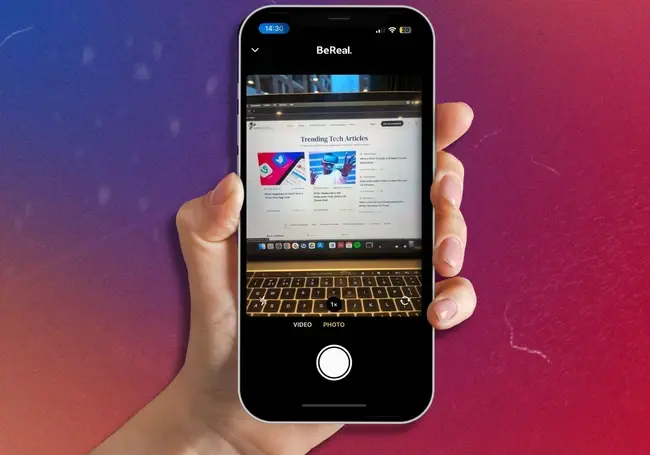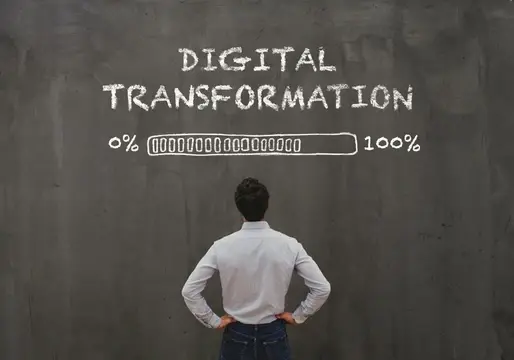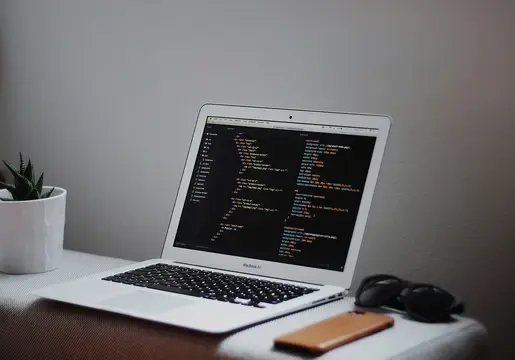If you were in a public place during BeReal’s peak in 2022 you may have experienced a surreal moment where seemingly everyone in the room would whip out their phone to take a photo in unison.
Though this ritual was baffling for outsiders, those in the know knew that it was 'Time to BeReal'.
But what happened to BeReal and why did it’s popularity dwindle so quickly?
We’ll tell you everything you need to known about what happened to BeReal including how it works and who created it.

What is BeReal?
BeReal is a social media platform that aims to challenge and disrupt how users typically interact with social media sites. It intentionally encourages users to share raw, unfiltered, unposed images of their lives in real time.
Operationally this looks like a notification that goes off at a random point everyday that reads ‘It’s Time To Be Real’. A timer for two minutes to take a photo then begins.
The user then opens the app and clicks the camera capture button, this takes a simultaneous image with both the front and back cameras. This typically means a ‘selfie’ and the user's view are captured at the same time.
The user can post after, but not before, the allotted to minute window but this is marked as ‘late’ and is not in the spirit of the app- seeing peoples days in real time.
You can also retake the BeReal if you’re unhappy with the initial photos but be warned that the amount of ‘retakes’ you take will be shared with your followers.
How does BeReal Work?
For users BeReal is simple and intuitive, it works by sending a notification and a random time every day that prompts the user to ‘Be Real.’ The user then opens the app and takes a simultaneous photo with their front and back camera.
This is shared to their friends who have all taken photos within the same two minute window.
Behind the scenes, BeReal uses Google’s Cloud Functions for Firebase for a low-maintenance serverless back end. This ensures their data is private and secure. They also utilize Firestore to store, sync, and query app data. During development they also utilized Google Kubernetes Engine (GKE) for the initial build-and-deploy cycle. This continues to be used to scale up the app as needed.
When did BeReal Come Out?
BeReal came out on December 19th 2019, when it was officially launched to the App Store.
Though it began gaining some traction in early 2020 the app did not gain significant traction until early 2022.
Who created BeReal?
BeReal was created by Alexis Barreyat and Kévin Perreau.
Unlike other social media tech moguls such as Zuckerberg and Musk, the two French entrepreneurs behind Bereal have kept an incredibly low public profile.
What Happened to BeReal?
Although it was developed in 2019, BeReal’s popularity initially skyrocketed in 2022. It was initially massively supported by a $30 million funding round from Andreessen Horowitz and Accel June 2021.
It was further set up for more success when it secured an additional $85 million from a funding round led by DST Global in May 2022. This increased its valuation to $600 million.
By August of 2022, BeReal reported 10 million committed users that engaged daily, as well as 21.6 million more casual active monthly users. At this time it was also topping Apple’s App Store charts and received their iPhone App Of The Year award.
By February of 2023 this had grown further, with 13 million active daily users and 47.8 million active monthly users.
However, despite the initial success of the newfound social media app, BeReals user base began to drop. In late spring of 2023 daily users dropped significantly to around 6 million. This was a significant loss from a peak of 15 million users in October 2022.
RealPeople and RealBrands Dilute Purpose
The company ran a large-scale campaign during the Paris Olympics to attempt to bring more users aboard, however only achieved around 1000 new users.
This coincided with adding new features to the app that included ‘RealBrands’ and ‘RealPeople’. These feeds added pictures from celebrities including Niall Horan and Joe Jonas as well as brands including Adidas, Puma and Reebok.
The addition of celebrities and brands was one of the major contributors to BeReals decline in popularity. The initial appeal of the app was that it served as an ‘anti-Instagram’, rooted in their unique selling point of authentic, friend focused feeds that spotlighted real and unfiltered lives. The inclusion of brands and celebrities undermined this original purpose to many.
BeReal released a statement anticipating this pushback which read:
“Our mission is to create a more authentic world and keep you connected with the people you really care about. People want to see more of the faces behind the filters, the people behind the brands, and the chaotic moments that make life so human. RealPeople & RealBrands have to post on time, just like everyone else…no filters…just spur of the moment authentic BeReal.”
User Fatigue and Hype Loss
Social media platforms all demand our attention constantly, but it is easy for them to start feeling like a chore if they don’t keep up with our increasingly depleting attention span.
The daily notification, while initially exciting, became a burden. Fundamentally, it does get less exciting to see your friends post from their office desk or living room sofa every day for over a year. It feels similarly boring to post this yourself, wishing that the notification had just gone off two hours earlier when you were doing something much more exciting.
Users began to drift away from the app, perhaps realising they were more interested in friends and acquaintances highlighting reels on other apps like Instagram, rather than the daily mundanity.
Is BeReal Dead?
No, BeReal is not dead. Though the app has seen a steep decline both in users and cultural impact since its peak in 2022, it still remains active and available on the App Store.
Some users still engage daily, though exact active user figures are not public.
BeReal was bought by Voodoo in June 2024. The app development company will likely attempt to increase engagement following their significant investment.
How Much did BeReal Sell for?
BeReal sold to VooDoo for €500 million in June 2024.
This acquisition marked a significant milestone for BeReal, allowing it to leverage Voodoo's expertise and resources to further development.
Voodoo are a French app development company based in Paris. They are best known for creating apps that are classified as ‘hyper casual games’. This means they use very simple mechanics and are designed to be easily accessible to a wide audience, with a focus on quick and addictive gameplay. Their best known games include Helix Jump, Snake vs Bloc and Hole.io.
The acquisition of BeReal was motivated by Voodoo's desire to diversify into consumer apps as well as capitalize on BeReal's rapidly growing user base.








Comments ( 0 )